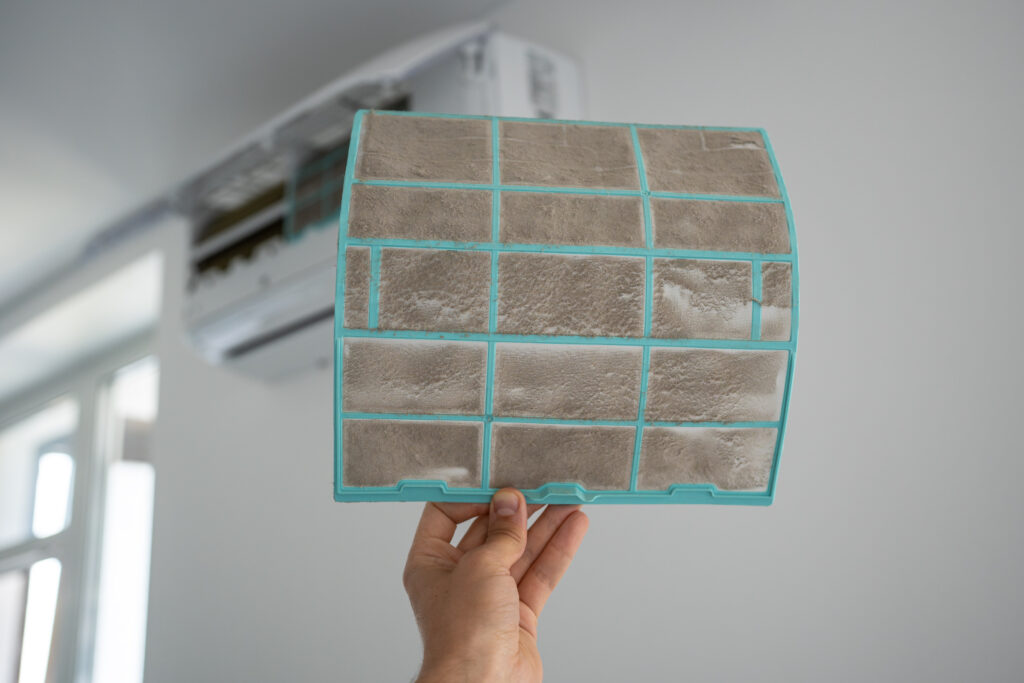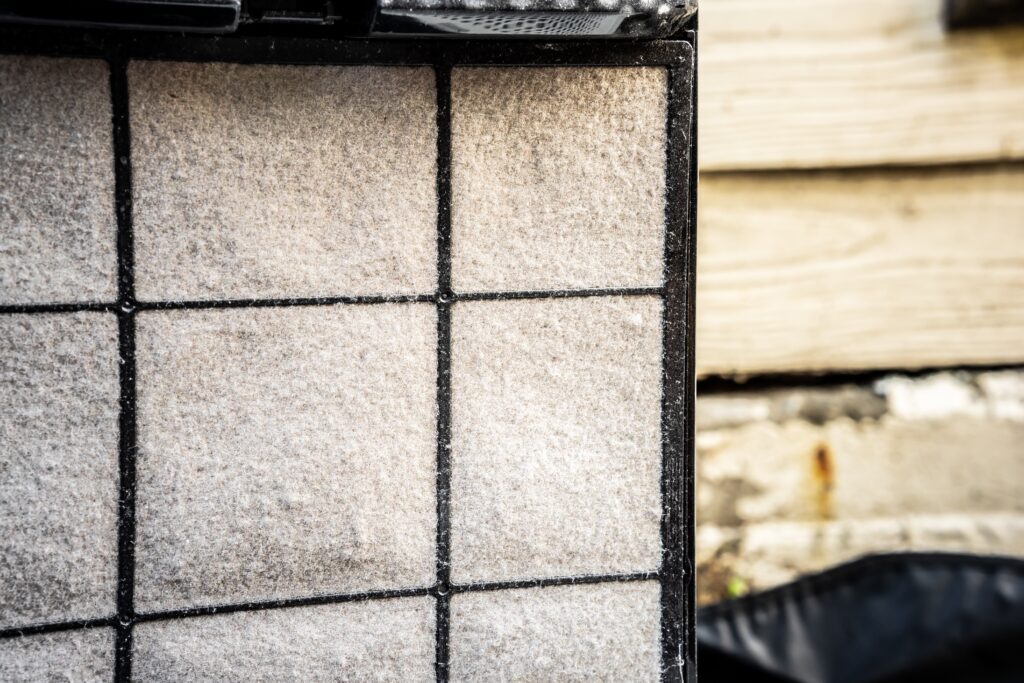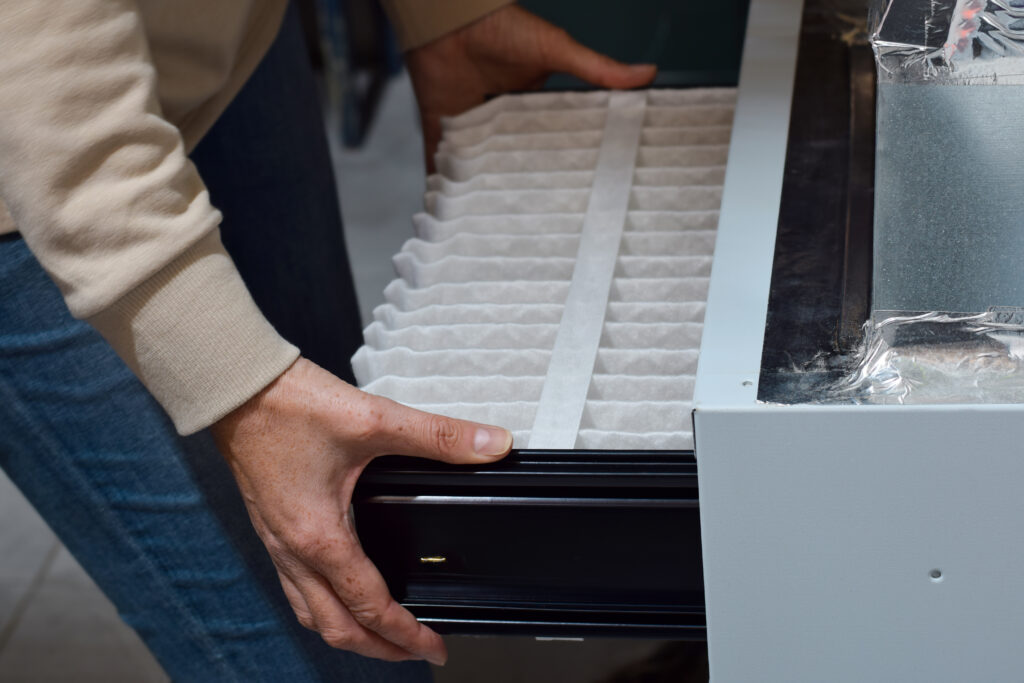Why Changing Your HVAC Filter Matters More Than You Think in Hurricane, UT
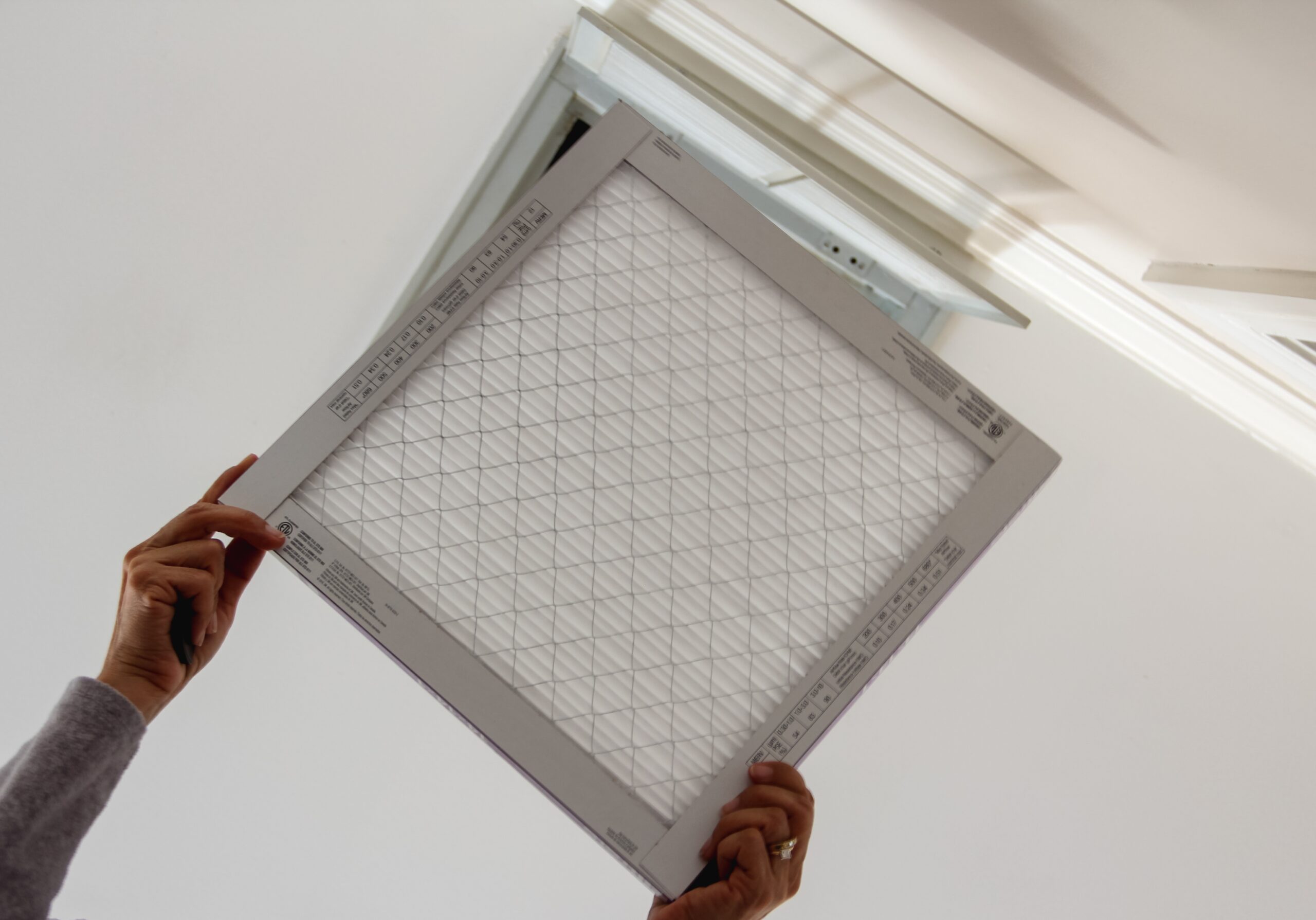
Your home’s heating, ventilation, and air conditioning (HVAC) system is a complex and powerful piece of machinery, but its performance and longevity often depend on one of the simplest and most inexpensive components: the air filter. This humble screen is the unsung hero of your home comfort system, working silently to protect both your equipment and your family’s health. Yet, for many homeowners, this critical maintenance task is often forgotten, overlooked, or delayed, leading to a host of preventable and costly problems.
Regularly changing your air filter is the single most effective thing you can do to ensure your HVAC system operates efficiently, provides clean indoor air, and lasts for its full intended lifespan. It is a small task that delivers an immense return on investment. This guide will provide a comprehensive look at why this simple piece of maintenance is so crucial, how it impacts your system’s performance, how to do it correctly, and how often it should be done to keep your Hurricane, UT home comfortable and healthy through every season.
Understanding the Role of an Air Filter
An HVAC air filter has two primary and equally important jobs. Its first and most critical function is to act as a guardian for the sensitive internal components of your furnace and air conditioner. As your system draws in air from your home to be heated or cooled, the filter stands in the way, trapping a wide array of airborne particles. Without this protective barrier, dust, debris, pet hair, and other contaminants would be pulled directly into the intricate mechanics of your system, coating the delicate fins of the coils and putting a major strain on the blower motor.
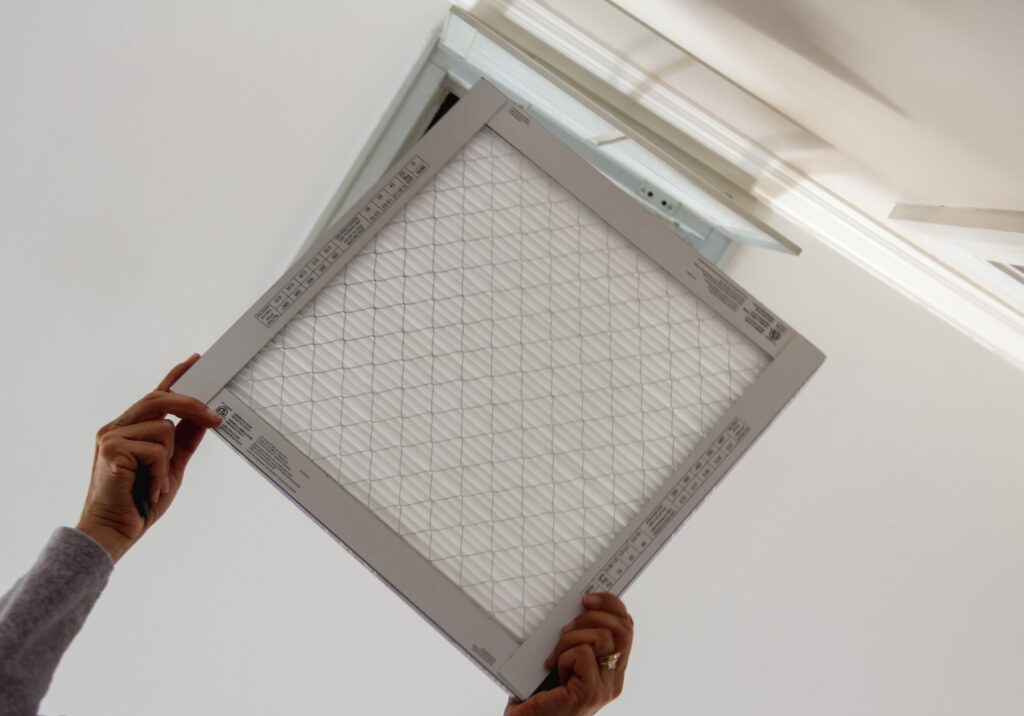
While it is protecting your equipment, the filter is also performing its second vital role: cleaning the air that your family breathes. The air inside our homes can often be more polluted than the air outside. The filter works continuously to capture and remove common indoor irritants like dust, pollen, pet dander, lint, and even microscopic mold spores from the air as it circulates. This process is essential for creating a healthier indoor environment for everyone in your household.
There are several different types of filters available, from basic, disposable fiberglass filters to more effective pleated filters and even washable electrostatic models. Their ability to capture particles is measured by a MERV, or Minimum Efficiency Reporting Value, rating. A higher MERV rating means the filter can trap smaller particles. Regardless of the type, the core principle remains the same: the entire performance of your HVAC system depends on the free and unrestricted flow of air through this filter.
The Impact on Indoor Air Quality
The quality of the air inside your home has a direct and significant impact on your family’s health and well-being. A clean, high-quality air filter is your first and most powerful line of defense in managing your indoor air quality. As your HVAC system circulates the entire volume of air in your home multiple times per day, a clean filter is constantly working to remove the airborne particles that can cause irritation and trigger respiratory issues.
This is particularly important for households where family members suffer from allergies, asthma, or other respiratory sensitivities. A clean filter can effectively trap common triggers like pollen, dust mites, and pet dander, preventing them from being continuously recirculated throughout your living spaces. This can lead to a noticeable reduction in allergy symptoms, fewer asthma flare-ups, and a more comfortable and healthier breathing environment for everyone. This is especially relevant in our Hurricane, UT climate, where dry, dusty conditions and seasonal pollen can be a major concern.
A neglected, dirty filter, on the other hand, can have the opposite effect. Once a filter becomes completely clogged, its ability to capture new particles is eliminated. Even worse, the force of the air being pulled through the saturated filter can sometimes dislodge previously trapped particles, re-releasing a concentrated cloud of dust and allergens back into your home’s air supply. Maintaining a clean filter is a simple but powerful commitment to your family’s health.
Energy Efficiency and Lower Utility Bills
One of the most immediate and tangible benefits of regularly changing your air filter is the positive impact it will have on your monthly energy bills. A dirty and clogged filter severely restricts the flow of air into your HVAC system. Think of it as forcing your system to try and breathe through a thick, heavy blanket. This obstruction forces the system’s blower motor to work significantly harder and run for much longer periods to pull in enough air to heat or cool your home to the temperature set on your thermostat.
This increased effort and extended runtime translate directly into higher energy consumption. According to the U.S. Department of Energy, this simple act of replacing a clogged filter with a clean one can reduce your HVAC system’s energy consumption by as much as fifteen percent. In a climate like ours in Southern Utah, where our air conditioners and furnaces work hard for a significant portion of the year, these monthly savings can add up to a substantial amount over the course of a year.
A clean filter also allows your system to achieve your desired temperature more quickly and maintain it with greater ease. This not only saves money but also enhances your overall comfort. The small, upfront cost of a new filter is an insignificant price to pay for the significant and immediate savings you will see on your next utility bill.
Preventing Damage to Your HVAC System
Beyond the immediate impact on your energy bills and air quality, regular filter maintenance is also a critical part of protecting your long-term investment in your HVAC equipment. The strain caused by a clogged filter can lead to a cascade of mechanical problems, resulting in premature wear and tear on your system’s most expensive components and leading to costly, unexpected breakdowns.
The component that suffers the most immediate strain is the blower motor, which can overheat and burn out from the constant effort of trying to pull air through a blockage. A clogged filter is also one of the primary causes of two of the most common HVAC failures. In an air conditioner, the restricted airflow prevents enough warm air from passing over the indoor evaporator coil. This can cause the coil’s temperature to drop below freezing, leading it to become encased in a solid block of ice, which will shut the system down completely. In a furnace, the same lack of airflow can cause the heat exchanger to get dangerously hot, which will trip a high-limit safety switch and leave you without heat.
These types of failures often require an expensive emergency service call to resolve. The simple, inexpensive act of replacing your air filter on a regular basis is your best insurance against these major repairs. By reducing the daily strain on your system, you are helping to ensure a long and healthy operational lifespan for your entire HVAC system.
How Often Should You Change Your Air Filter?
One of the most common questions homeowners ask is how frequently their HVAC filter truly needs to be changed. While a general industry guideline is to check it monthly and replace it at least once every one to three months, the correct answer for your home depends on your specific living environment and lifestyle.
Several factors can cause your filter to get dirtier, faster. If you have pets in your home, their hair and dander will be constantly pulled into the system, which will require you to change your filter more often, likely on a monthly basis. The number of people living in the home also has an impact, as more activity tends to stir up more dust. Your local environment is another key factor. In a dusty, desert climate like ours in Hurricane, UT, especially if you live near new construction, your filter will accumulate particles more quickly.
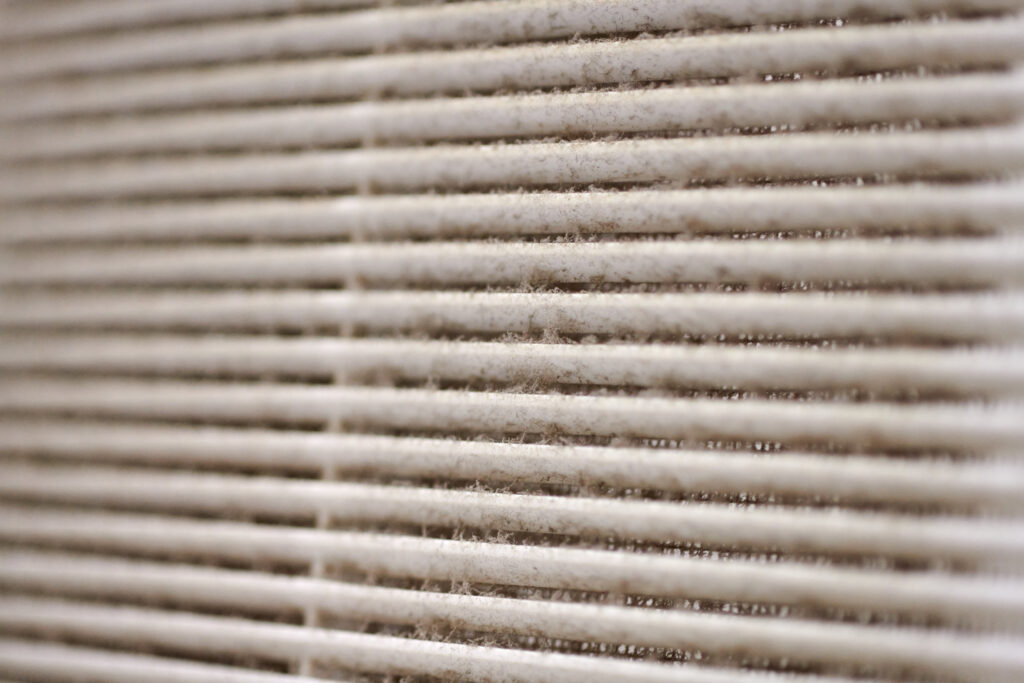
The best approach is to perform your own simple visual inspection every month. Carefully slide the filter out of its slot and hold it up to a light source. If the filter is visibly coated in a thick layer of gray dust and you cannot easily see the pleated filter material, it is time for a change, regardless of whether it has been one month or three. This proactive check is the surest way to know you are changing your filter at the right time for your home.
Step-by-Step to Changing Your Air Filter
Replacing your HVAC filter is a quick, easy, and safe task that every homeowner can and should do. The first step is to make sure you have the correct size replacement filter on hand. The filter’s dimensions are always printed on its cardboard frame and will look something like “20x25x1.” It is essential to use the exact same size to ensure a snug fit, as a poorly fitting filter can allow dirty air to bypass it.
For your safety, it is always a good practice to turn off your HVAC system at the thermostat before you begin. Next, you will need to locate the filter’s slot. In most systems, this is located on the indoor furnace or air handler unit, which is typically found in a utility closet, garage, or basement. In some homes, the filter may be located in a large return air grille in a ceiling or wall.
Once you have located the housing, simply unlatch the access panel or door and carefully slide the old, dirty filter out. As you do, pay attention to the airflow arrow that is printed on its frame. This arrow indicates the direction that the air is moving through the system, and it is crucial for installing the new filter correctly. The arrow should always point toward the furnace or air handler unit. Slide the new, clean filter into the slot, making sure its airflow arrow is pointing in the proper direction. Once it is securely in place, you can close the access panel and safely turn your system back on. It is also a great habit to write the date on the frame of the new filter so you can easily track when it was last changed.
The humble air filter is a small and inexpensive component, but its impact on your home is immense. The simple, five-minute task of changing your filter on a regular basis is one of the most powerful actions you can take as a homeowner. It is a commitment that pays you back in three significant ways: you will protect your family’s health by creating cleaner, healthier indoor air; you will save money every month through improved energy efficiency and lower utility bills; and you will protect your major HVAC investment by preventing unnecessary strain and costly, premature breakdowns.
We encourage all homeowners in the Hurricane area to make this simple task a non-negotiable part of their regular home maintenance routine. Set a recurring reminder on your calendar, and make a habit of checking your filter on the first of every month. If you have any questions about your HVAC system or would like to schedule a professional inspection and tune-up to ensure your entire system is in peak condition, we invite you to contact the expert team at Heatwave Solutions.


